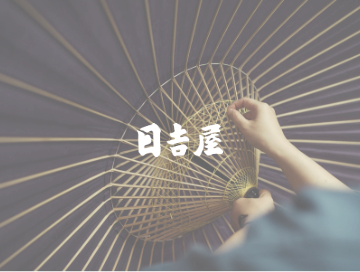Special Feature

Life with a Traditional Japanese Umbrella
We had the pleasure of interviewing Ayano Shimizu, the 4th-generation proprietress of Shogetsu, a long-standing Kyoto cuisine restaurant.
Founded in 1949, the Kyoto cuisine restaurant Shogetsu has carried on the spirit of omotenashi - Japanese hospitality - through four generations, always accompanied by the gentle presence of wagasa, traditional Japanese umbrellas. On rainy days, it has long been the custom for each proprietresses to see guests off under the shelter of a wagasa. This thoughtful gesture has become a familiar and cherished sight at Shogetsu.
In this interview, we talk with Ayano Shimizu about how she first encountered wagasa, what makes them special, and how they can be enjoyed in everyday life.
Quietly Present - Memories of Wagasa
"Traditional Japanese umbrellas weren’t anything particularly special to me - they were simply part of daily life. Ever since my great-grandmother’s time, it was a familiar scene for us to see guests being seen off with a wagasa on rainy days," explains Mrs. Shimizu.
She began using her own Japanese umbrella, a janome-gasa from Hiyoshiya, which she received as a birthday gift the same year she became proprietress of the inn.
"I love the elegant red washi paper and the delicate silhouette of the bamboo ribs - it’s truly beautiful," she says. "The person who gave it to me said, ‘Hiyoshiya umbrellas are the real deal. As a proprietress, it’ll make you look even more graceful.’"

A Source of Confidence and Calm
"Since I started using the wagasa, I’ve felt a curious sense of ease. When I first took on my role, my days were filled with lessons and managing the restaurant. On top of that, I was so focused on understanding what it means to be a Kyoto restaurateur and a proper hostess that at times, I felt emotionally drained. But when I opened the umbrella, I could relax. Somehow, the sense of ‘Kyoto-ness’ and the role of a proprietress started to come naturally. From that moment onward, I also began receiving more compliments from our guests."
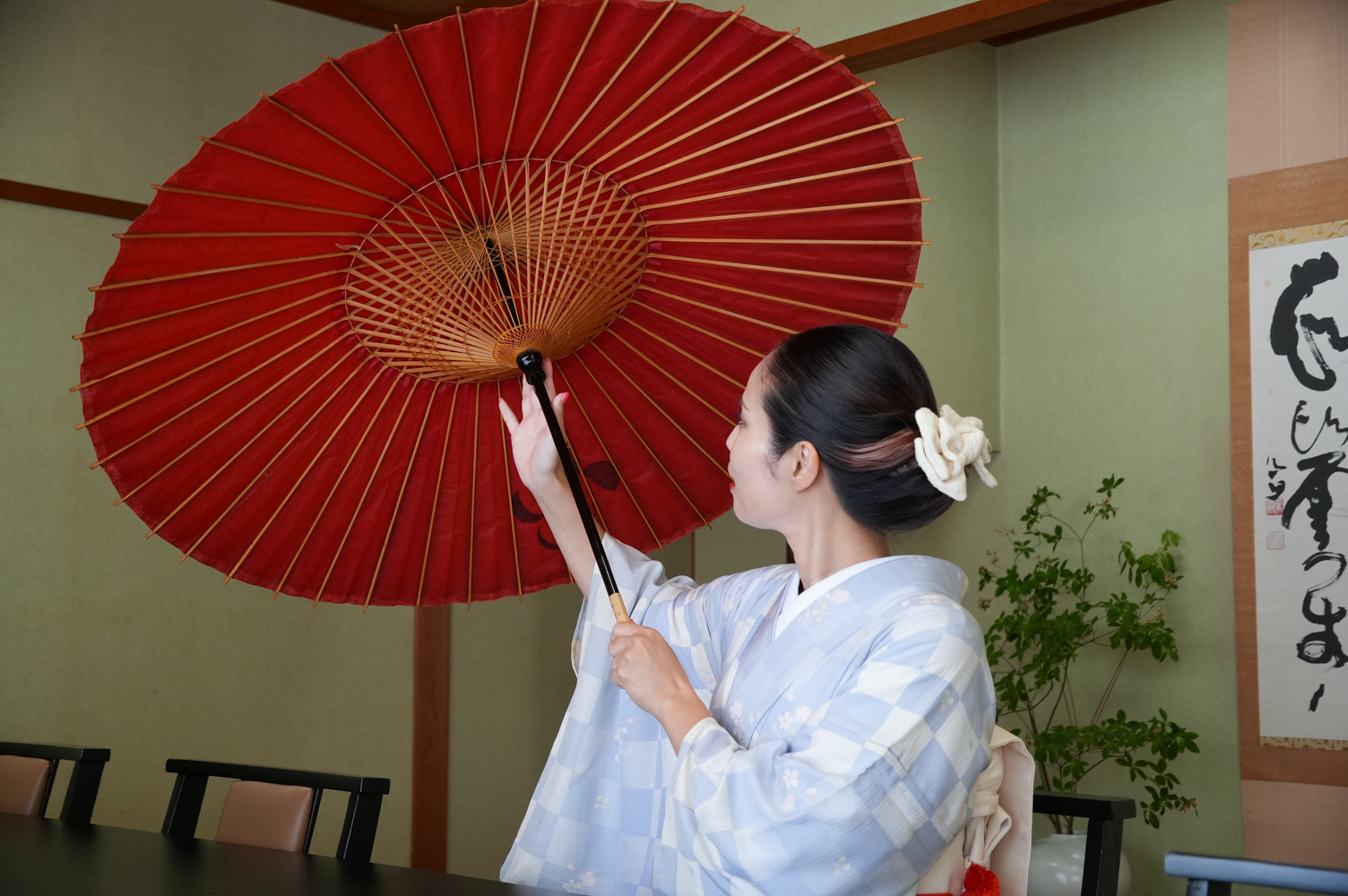
She had once bought a different wagasa but she could clearly feel the difference with this one. "The color of the washi paper and the way it looks when it’s opened are so elegant. A well-made wagasa really stands out."
Another Japanese Umbrella and a Gentle Moment
Later, Ms. Shimizu, who often goes out wearing a kimono, was gifted another wagasa called ‘ryoten’. It’s a lightweight, easy-to-carry umbrella that can be used in both rain and sunshine, softly filtering the light on sunny days.
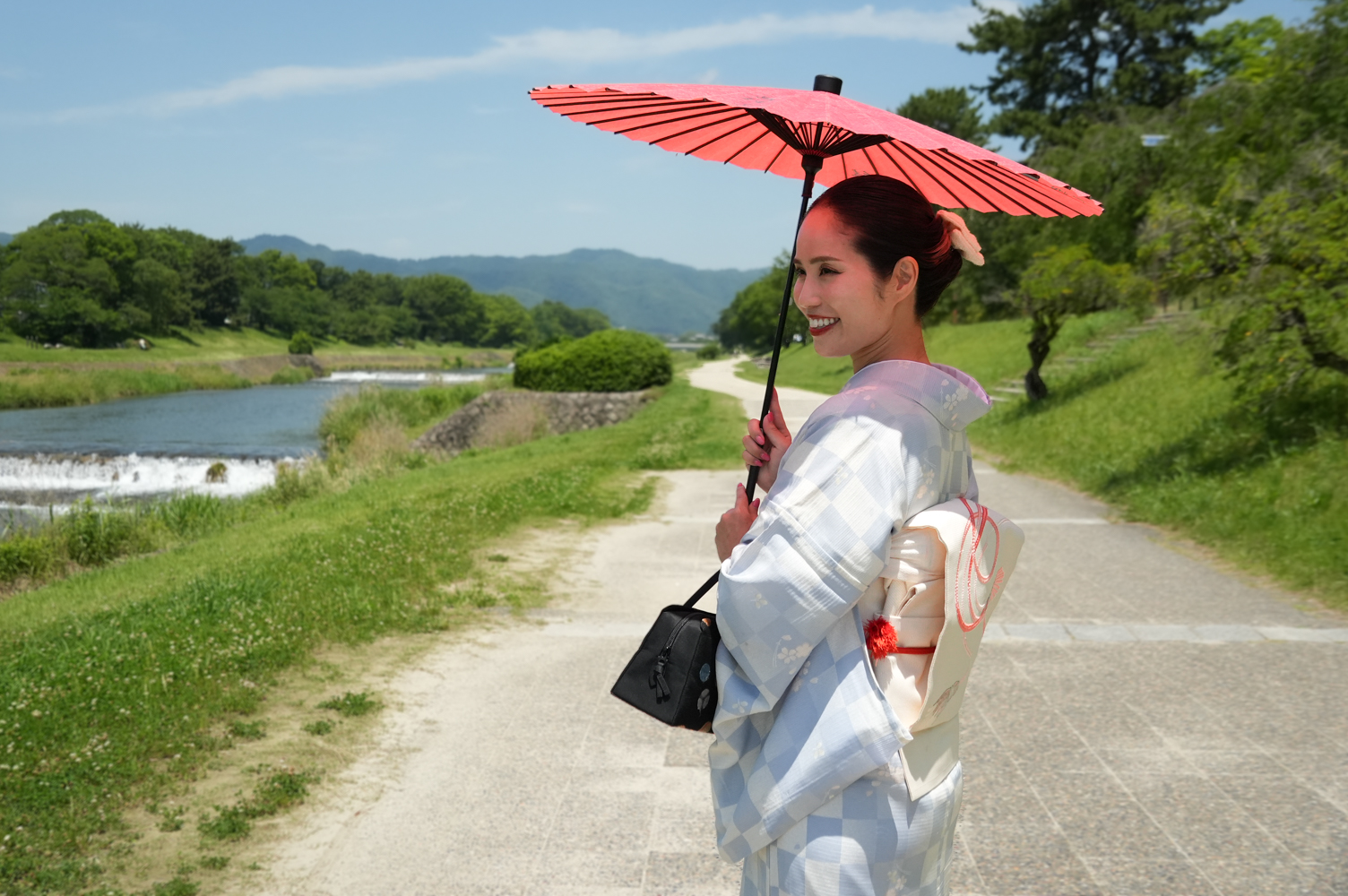
"Recently, after watching me, my niece has started seeing off customers with a wagasa. It’s so adorable to see her holding a ryoten umbrella in her little hands. Guests who are seen off feel a comforting warmth. Even after the meal, the gentle moment lingers, brightened by the sight of her niece.
A ‘Slightly Inconvenient Umbrella’ That Enhances Graceful Movement
"Some people might find it inconvenient that Japanese umbrellas can’t be carried over the arm like Western ones. But the distinctive way you hold a wagasa with the umbrella’s top facing up naturally improves posture and makes your movements look more graceful."
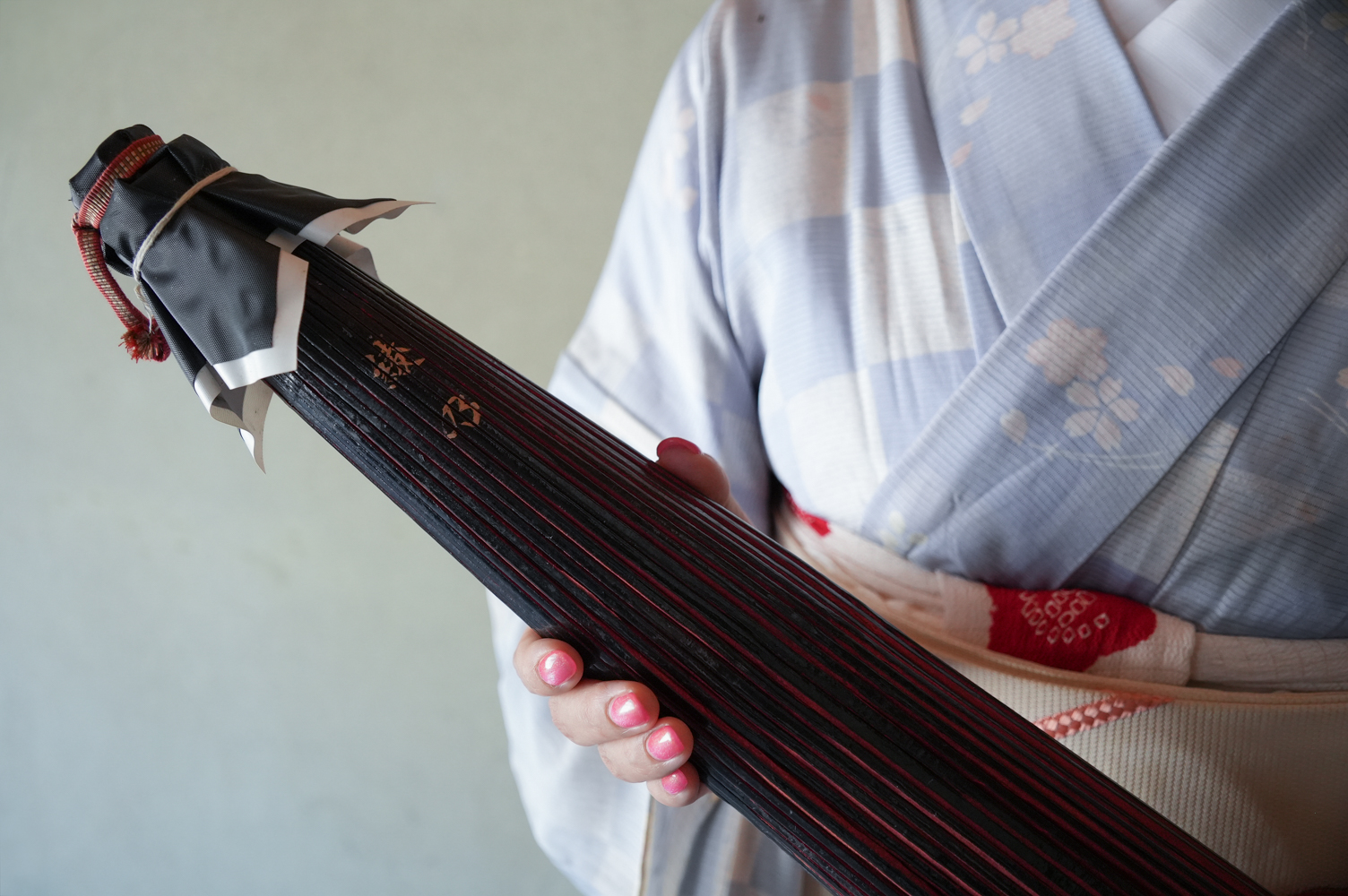
Ms. Shimizu’s custom-made wagasa features the Shogetsu logo along with her name. "I really like having my name inscribed on the ribs of the umbrella, it feels like something a performer of the traditional entertainment district would use."
Enjoying the Wagasa as Part of Daily Life
"Even though it’s a wagasa, it’s still an umbrella. I try not to be too particular or formal about it and use it as part of my everyday life. After using it, I just stand it upright with the top facing up. That alone is enough to keep it in good condition for a long time."
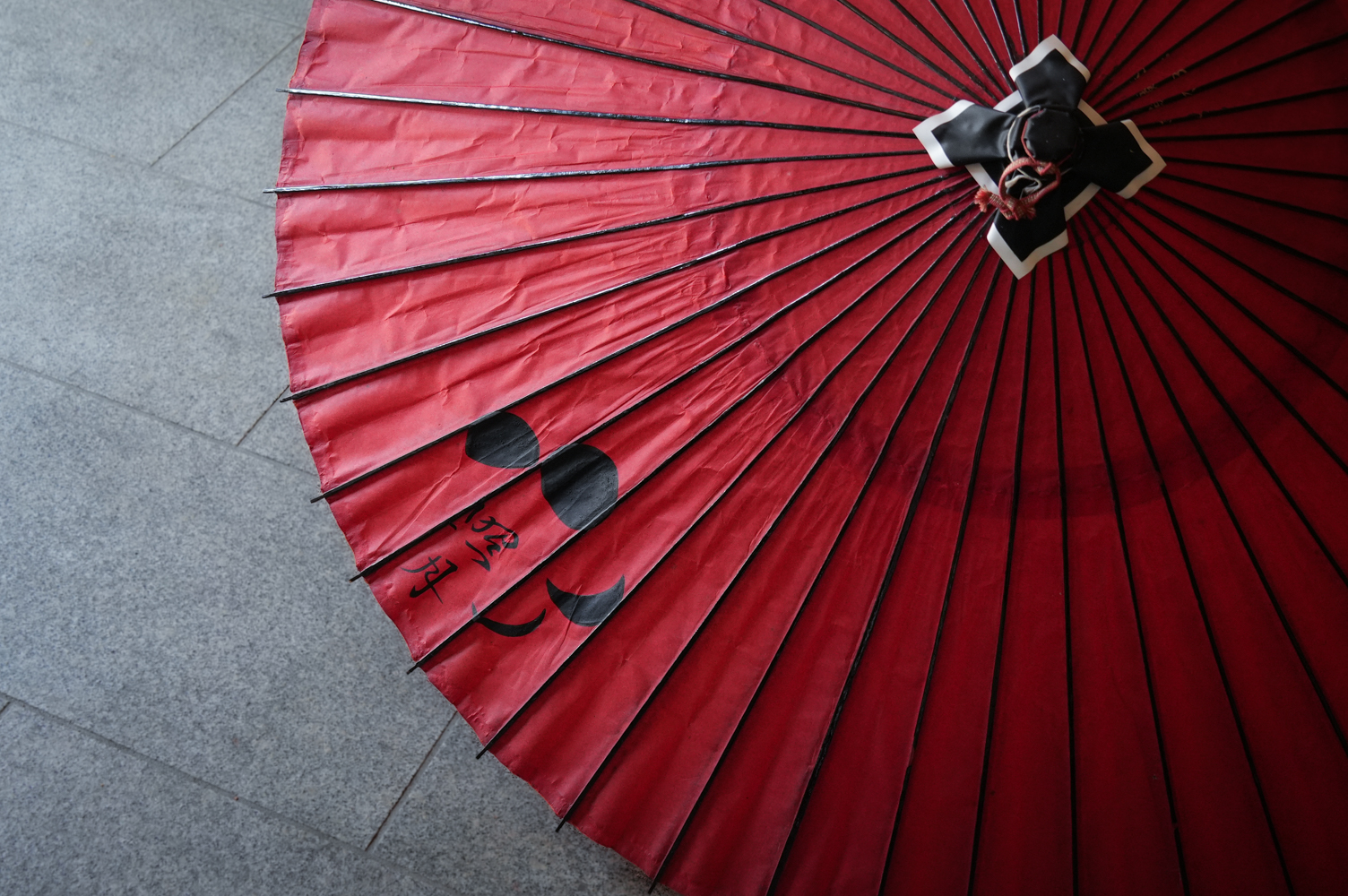
Although made of washi paper, the Japanese umbrella is durable and won't be damaged by a little rain. One of its charms, Ms. Shimizu says, is that it can be repaired and used for many years.
"Like kintsugi - the Japanese art of repairing broken pottery - a wagasa can be carefully repaired, piece by piece, and be used continuously. This is one of the unique qualities of Japanese umbrellas."
For Those Thinking About Trying a Japanese Umbrella
"A wagasa isn’t like an ordinary umbrella, it is something special. It’s true that at times it may seem a little inconvenient, but the way you carry it, the mood it creates, all of it is part of the experience. Just using it makes you feel a little more refined, a little more unique. I love the person I become when carrying a wagasa."
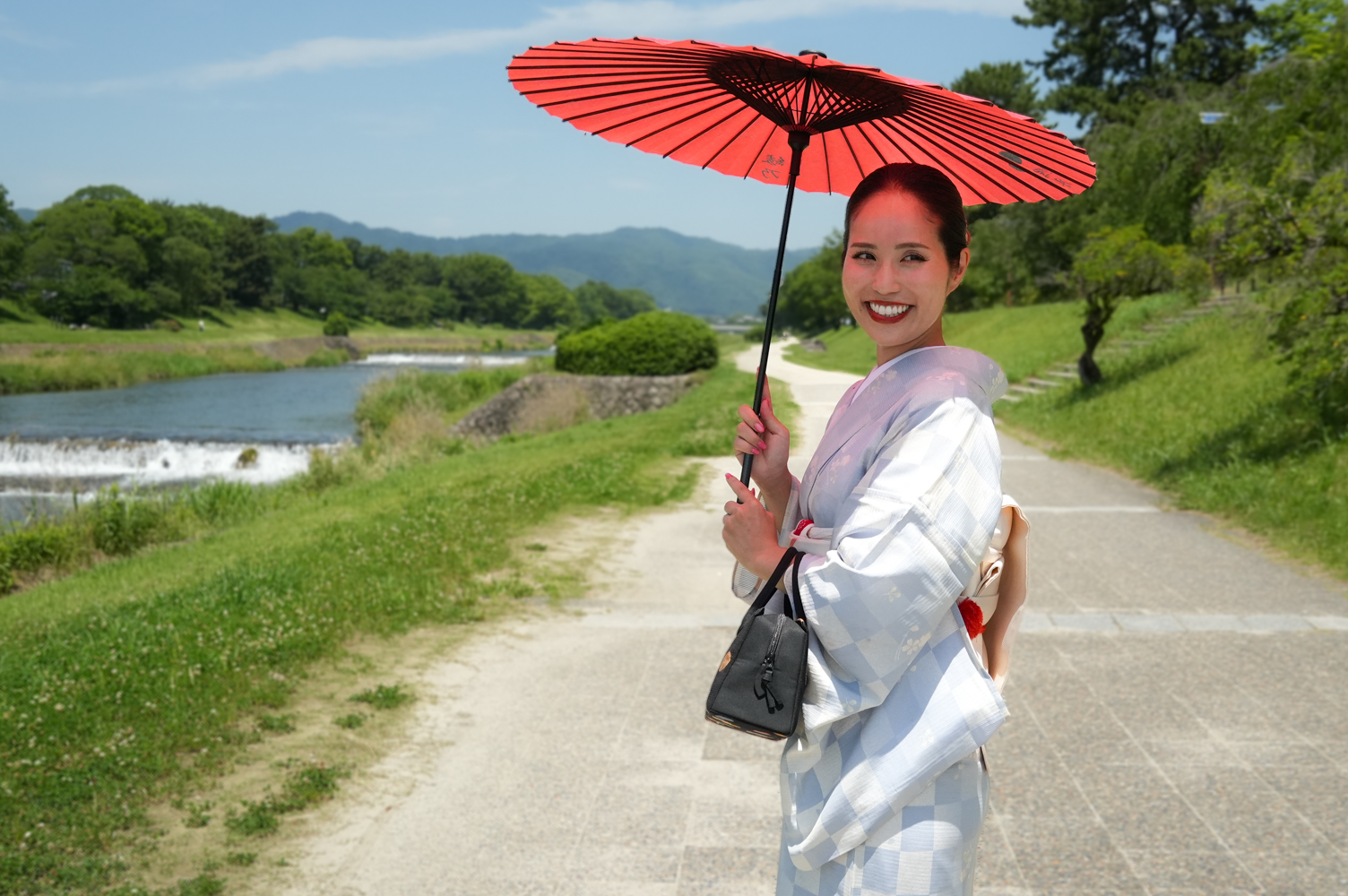
Graceful Movements Bring Peace of Mind and Confidence
Why not experience for yourself a traditional Japanese umbrella - one that gently supports both your daily life and your state of mind?
